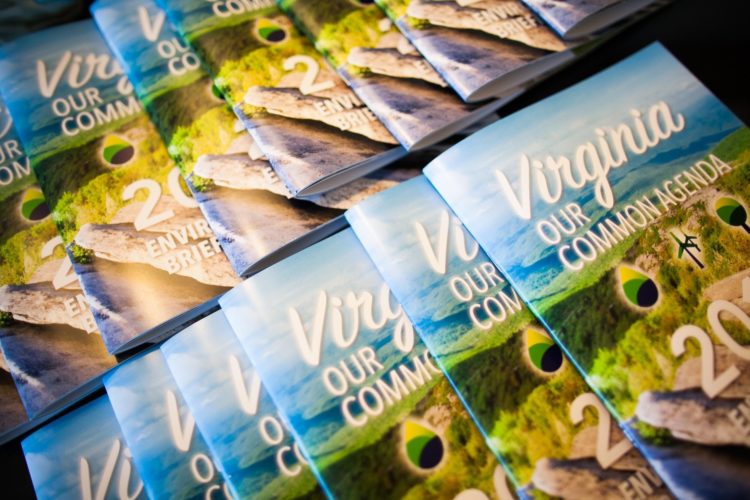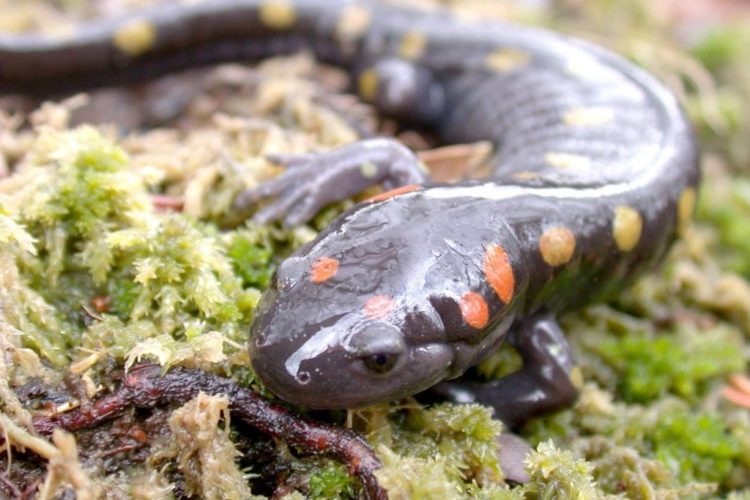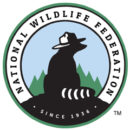We have much more to do and your continued support is needed now more than ever.
Affiliate of the Week: Virginia Conservation Network

In honor of our 80th Anniversary celebration throughout 2016, the National Wildlife Federation is recognizing each of our Affiliate Partners in a special “Affiliate of the Week” blog series that showcases the dedicated conservation efforts taking place across the country each day. This week we celebrate our affiliate, Florida Wildlife Federation, and their commitment to wildlife.
WHO WE ARE
Founded as the Conservation Council of Virginia in 1969, Virginia Conservation Network (VCN) began as a roundtable of major conservation groups and has grown to include over 120 network partners across the Commonwealth. VCN is committed to building a powerful, diverse, highly-coordinated conservation movement focused on protecting our Commonwealth’s natural resources today and for tomorrow. Playing a unique role in Virginia’s conservation community, VCN helps the community speak with one coordinated voice by serving as a facilitator of strategic action, a resource for network partners statewide, and a constant conservation presence in Virginia’s Capitol.

WHAT WE DO
Given the diverse work of its Partners, VCN organizes its programs into three main categories: Healthy Rivers, Clean Energy, and Green Communities.
Healthy Rivers
Virginia’s waterways and the Chesapeake Bay are critically important for a thriving Commonwealth. Healthy rivers and streams provide safe drinking water and allow residents and visitors to enjoy Virginia’s abundance of outdoor recreational opportunities. Clean water is not only critical for wildlife and ecosystems but also for Virginia’s major industries, including agriculture, tourism, and fisheries. VCN is committed to supporting sound policies and the funding necessary to protect and restore Virginia’s rivers and streams.
Clean Energy
How Virginia powers its businesses and homes has a significant impact on public health and the environment. VCN aims to transition away from outdated fossil fuel sources and build the new Virginia economy with clean technologies, including wind, solar, and energy efficiency. The state can cut carbon and other pollutants, lower electricity bills for customers, and generate good paying jobs buy building Virginia’s clean energy future. The technology is available and neighboring states are seizing opportunities—Virginia must as well.
Green Communities
Virginia’s amazing landscape defines the Commonwealth. Therefore, it is imperative that we preserve the rolling hills of the Piedmont that are home to red-tailed hawks, great horned owls, white tailed deer, and black bear, the sandy banks of the coastal plain, the fertile soils of the Valley, the dense forests of the Southwest, and the many other beautiful regions across the state. Supporting policies that encourage the development of communities that respect and preserve these landscapes is an important component of VCN’s work. Through common sense growth practices, VCN builds for tomorrow and protects the historic and scenic beauty of Virginia.
To strengthen these programs, the organization publishes its annual Environmental Briefing Book, titled Our Common Agenda, in which priority environmental issues agreed upon by Network Partners are explained. This resource is widely distributed to partners, advocates, and legislators throughout the year.

To strengthen the conservation community as a whole, VCN hosts three annual events: The Virginia Environmental Assembly in September, the General Assembly Preview in December, and Conservation Lobby Day in January. As an example, bringing together conservation leaders from across Virginia, the Environmental Assembly provides a forum for discussion on key environmental issues and an opportunity to strategize with like-minded individuals about the best ways to tackle threats to our natural environment.

MAKing A NATIONAL IMPACT
An extraordinary and vital natural resource that supports 348 species of finfish, 173 species of shellfish, and more than 3,600 species of plant and animal life, the Chesapeake Bay is a national treasure — and national treasures deserve protection. Providing sound policies and funding that restore and protect Virginia’s streams and rivers is essential to the Bay’s continuing prosperity. This is why Virginia Conservation Network and its Healthy Rivers partners and allies — including the Chesapeake Bay Foundation, James River Association, and Friends of the Rappahannock, among many others — push state and federal officials to prioritize the Bay’s restoration and protection.
In the 2016 Virginia General Assembly session, over $60 million was allocated to Virginia’s Agricultural Cost Share Program—the most received in recent years. With a successful track record, these funds help farmers implement important practices — such as building fences to keep cattle out of streams—that keep Virginia’s waterways and the Chesapeake Bay clean and thriving.

Along with healthy waterways, national forests are also important places for all Americans to enjoy and provide critical habitat to diverse wildlife populations. Recently, there have been threats to the George Washington National Forest, which sits on the western edge of Virginia, from oil and gas extraction. To protect our natural resources, Virginia Conservation Network supports clean energy solutions, including solar, wind, and energy efficiency. VCN advocates for a new Virginia economy that prioritizes clean technologies in the General Assembly and provides support to its partners who are on the ground fighting to protect the state’s public lands, communities, and wildlife.
GET INVOLVED
To stay up-to-date on Virginia’s most pressing environmental issues and hard-fought successes, subscribe to Virginia Conservation Network’s email list.
Connect with VCN
Connect with the Virginia Conservation Network to get their latest news and keep up with their conservation efforts through Facebook, Twitter, or by visiting their website.





















